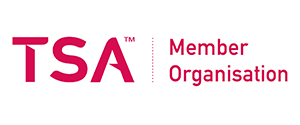News from Alertacall plus articles and insights on how to enhance outcomes for people with higher needs in the housing, health and social care sectors.
The new president of the Association of Directors of Adult Social Services (ADASS) has urged social care leaders to drive forward the integration of social care with housing and accommodation. She also challenged members to ‘envisage the future’ and how technology could be better utilised to deliver self-service care.
In her inaugural address delivered at the ADASS Spring Seminar on 31 April 2019, Julie Ogley said social care’s relationship with housing is as important as its relationship with health.
“In the absence of the Green Paper I would encourage colleagues nationally and locally to focus on housing and accommodation – lifetime homes, homes for people with care and support needs and their carers or PAs, a safe home for people who have been in an abusive relationship, just a roof over your head for some people,” she said.
Ogley, who is also the director of Social Care, Health and Housing at Central Bedfordshire Council, said: “Are you confident that councils in their local plans are focusing on the right type of housing for their current and future populations? Across all tenures we need people to be living in accommodation that meets their changing needs.”
While praising the work undertaken in adult social care by the “very skilled, committed workforce that comes to work every day to improve people’s lives”, Ogley went on to challenge delegates about how they saw the future of Adult Social Care:
“Do we think that our current model is going to last for the next 5, 10 years or generation? Is it what you would want for you and for your families?’
Are we truly embracing technology and digitisation, in how our workforce operates and how care is delivered? A silly example perhaps but why can I book a weekend break from my sofa but not respite care. Why can’t people self-serve/manage their own support?
“Do we really think that we know best about what is important to people/what matters to them? I think we really need to challenge our thinking.”
The view from Alertacall – we would welcome a review by ADASS into the satisfaction levels and usage of current assistive technology by customers
Alertacall welcomes the progressive and person centred approach promoted by Ogley in re-assessing how technology can be utilised to improve social care delivery for customers and the social care teams that support them. This mirrors the approach that Alertacall has always taken to developing services for older people and other higher needs groups.
Alertacall believes that one of the most critical components in optimising the potential offered by new technology innovations is ensuring customer ‘buy in’ and engagement. We would welcome a review by ADASS into the satisfaction levels and usage of current assistive technology by customers. Members of our team are already working in partnership with world-leading universities, such as the University of Manchester and Lancaster University, to conduct research projects in these areas to see where improvements can be made.
Our approach is based on daily contact being at the heart of services for people seeking to maintain their independence in a ‘lifetime home’ because it ultimately protects life, improves wellbeing and reduces social isolation. It can also help customers better interact with the services available to them by making information more accessible in a format best suited to them.
Importantly, technology should not be a replacement for human contact but rather a conduit for it. When daily contact is combined with technology like ours, it not only makes for a more personalised service which puts the customer in control over the contact they have but also helps organisations deliver efficiencies and predict imminent housing, health and support challenges for individuals.
For more information on Alertacall’s daily contact services, call 0808 208 1234 or email contact@alertacall.com
A copy of Julie Ogley’s speech is available on the ADASS website here.








